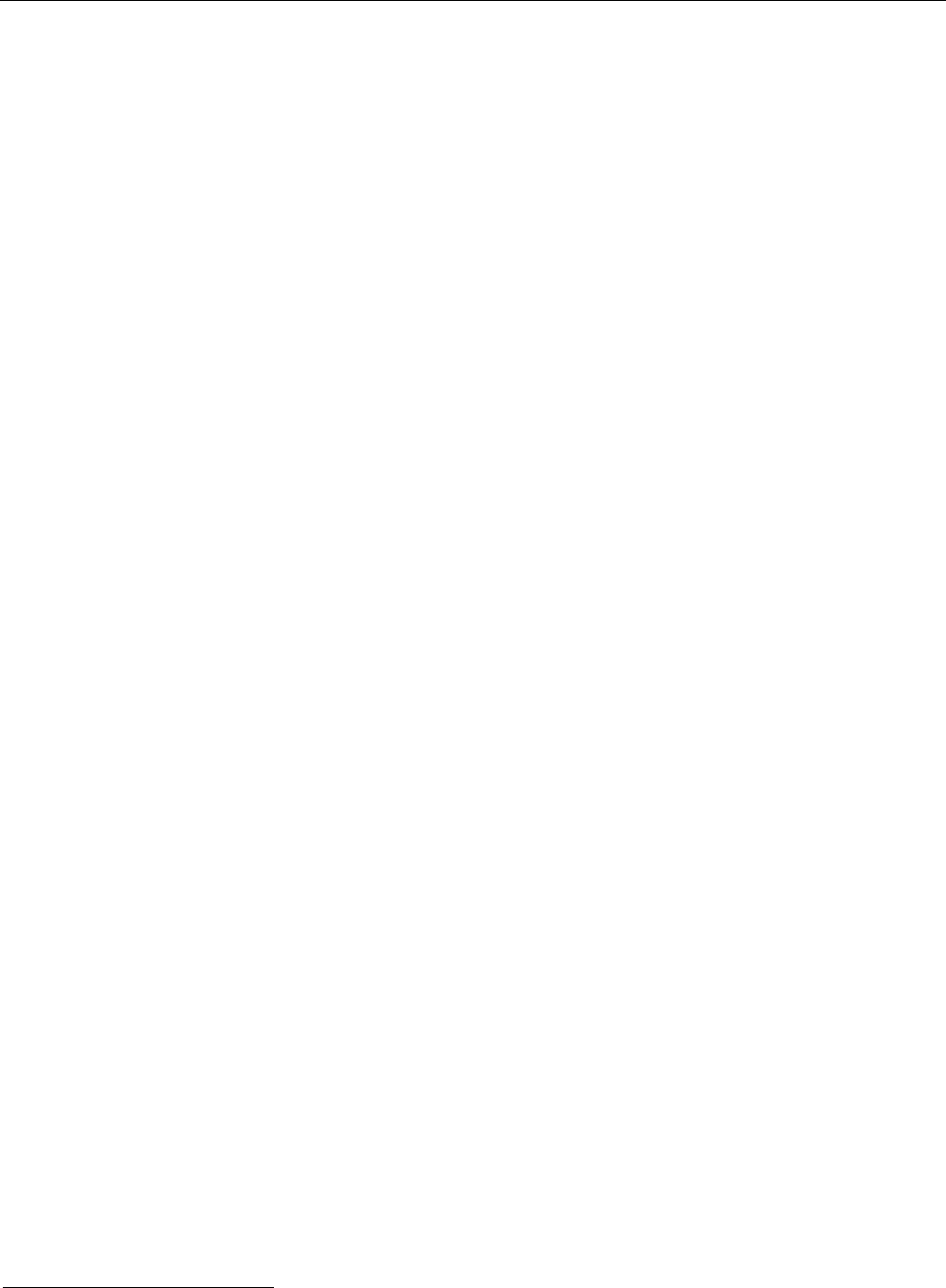
International Journal of Humanities and Social Science Vol. 8 • No. 9 • September 2018 doi:10.30845/ijhss.v8n9p15
163
The Financial Implications of the B.A. French, German and Portuguese Degree
Programmes at the Obafemi Awolowo University, Ile-Ife
Oyedele Olajumoke
Omidire Anike
Kofoworola Adeniyi
Department of Foreign Languages
Obafemi Awolowo University
Ile-Ife, Osun State, Nigeria
Abstract
This study examines the cost of studying French, German and Portuguese at the Obafemi Awolowo University
(OAU), Ile-Ife, Nigeria. Primary data were acquired through the administration of questionnaires to students of
French, German and Portuguese of the Department of Foreign Languages, OAU to know the cost of their studies
so far at the University. Secondary data were obtained through the use of the OAU prospectus and online
materials to access the cost of the B.A. Degree programme. In addition, journals, books and official documents of
the Department of Foreign Languages, OAU about the cost of the Year Abroad Programme (YAP) and the
Equivalent Year Abroad Programme (EYAP) were consulted. The study concludes that foreign language studies
at the Obafemi Awolowo University is relatively high compared to the minimum wage of #18,000 (less than
$100) of the average Nigerian civil servant.
Keywords: financial implication, challenges, French, German, Portuguese.
1. One of the major challenges to achieving quality education by individuals and even societies is that of finance,
especially in a developing country like Nigeria. For effective planning and policy development and execution,
there is need for proper and adequate examination of how much exactly the country needs to be able to provide
quality education for its populace. Extensive reviews of the literature on cost issues have been done in numerous
studies ( although hardly for Nigeria), which examined various concepts like economies of scale, unit costs, the
structures of costs, and scope expenditures by function among others (Levis &Dundar 1999: 39). According to
Levis & Dundar these studies tried to answer questions like the cost of education ofeach student, whether there
were any significant variations in the cost of the education of students within or across institutions, amount spent
by function and whether there had been significant changes over time (Ibid). In their own research, they attempted
to provide an extensive review of the literature already available, updated the literature and identified some policy
recommendations from the past studies. Their study employed theory, empirical evidence and policy
recommendations.
Relating to the Nigerian situation, various researches have been carried out on issues of finance and its effect of
the average Nigerian student (see Dang and Bulus (2015), Omoegun (2007) and Oni (2007). However, most of
these studies focused mainly on basic education and did not attempt to provide exact cost needed by the students.
This study therefore attempts to fill this lacuna.
1.1 What Nigerians spend to study?
A survey conducted by Study Search,
1
an online data bank, reveals that some Nigerians spend close to $50,000 on
overseas education. The survey result validates that the annual average cost of education in the United States of
America (USA) stands at $36,564. It further explains that the preferred destination for many Nigerian students is
the United Kingdom (UK), which costs about a thousand dollars less. The researchers, specifically Nigerians who
also study in the UK highlight some factors that influence such choice.
These factors range from the notion that foreign degree holders stand a better chance in the local economy to the
incessant industrial actions in the educational sector and the falling standards of tertiary institutions. The study
1
https://qz.com/558224/why-nigerians-are-saving-up-to-50000-to-pay-for-uk-and-us-degrees
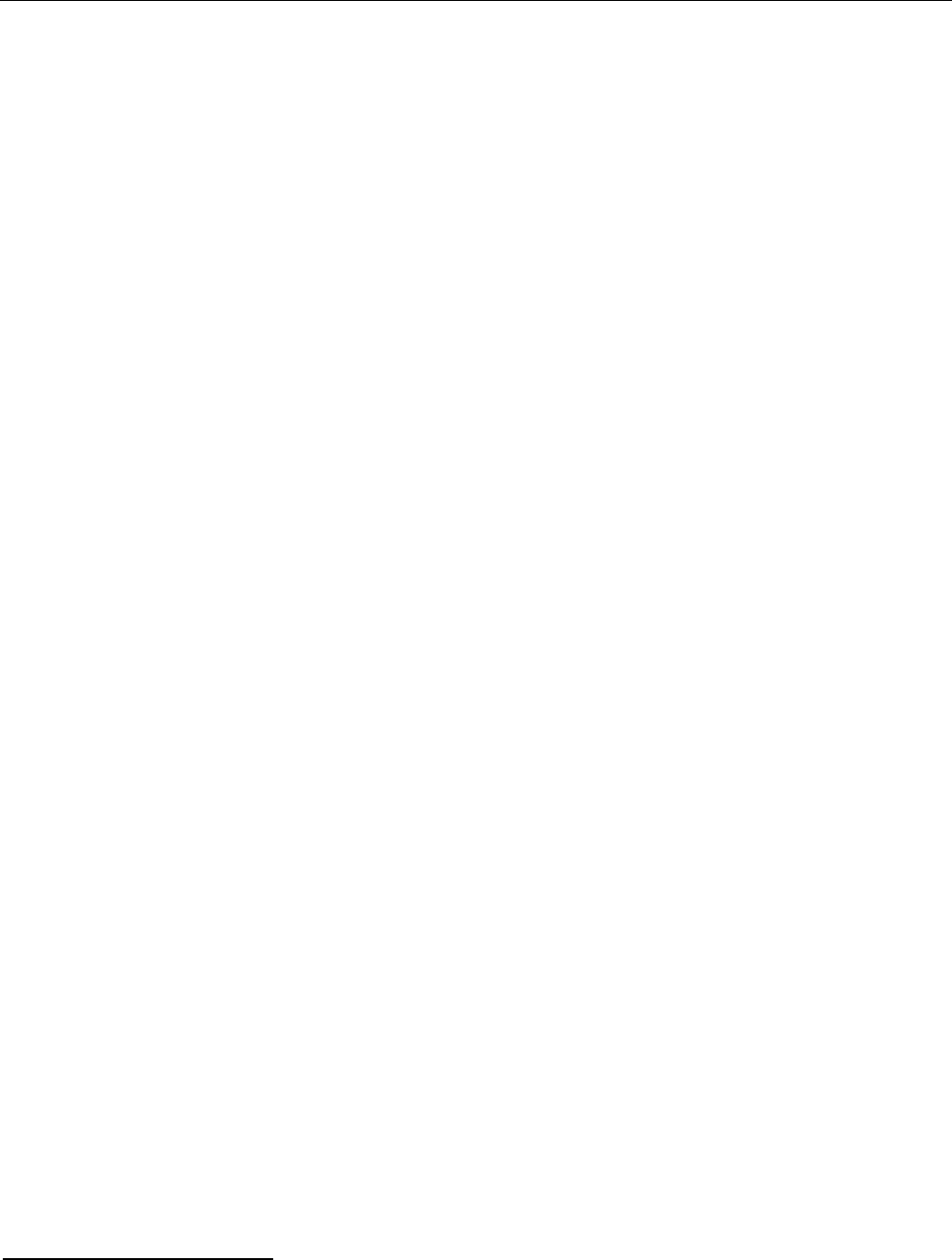
ISSN 2220-8488 (Print), 2221-0989 (Online) ©Center for Promoting Ideas, USA www.ijhssnet.com
164
concludes that 150 Nigerian public and private universities seem inadequate to satisfying the educational needs of
her growing youth population.
According to a US-based online prospectus
2
, diverse factors affect the cost of a Bachelor’s degree in the USA.
They include the nature of the institution; whether it is a public or private university, the type of degree; whether
it is a traditional or online degree, the duration of the course and other living expenses. Consequently, the
prospectus put the cost for studying in the USA as at 2012-2013 at $22,261 and $43,289 for a 4-year course in a
public and private institution respectively.
The National Centre for Education Statistics of the USA
3
corroborates the previous online prospectus in terms of
a major factor that determines the average cost of a university degree. It states that in the 2010/2011 academic
year, the estimated cost for a public not-for-profit tertiary institution was $13,600, while that of a private not-for-
profit educational institution stood at about $36,000.
Meanwhile, the Campus Explorer
4
, another web-based prospectus puts the national average of public 4-year
colleges in the USA at $25,588 per session, private 4-year not-for-profit colleges $85,296, and private 4-year for-
profit colleges $62,644. Worthy of note is the additional categorization – private 4-year for-profit colleges in the
USA, which had yet to be specified in previous references. The Campus Explorer not only added a new category
but it went a step further in listing some schools as well as the respective fees payable in each category.
Whereas, some subscribers of Nairaland Forum
5
, a Nigeria-based online blog, claim the cost of pursuing a
Masters’ degree in Nigerian universities ranges from 150,000 – 1,500,000 naira ($415 – $4,000 approx.),
depending on the course/discipline of study.
However, it is worthy of note that many of the Nigerian students who study abroad are not from rich families, but
are able to pursue their dreams due to the conducive environment for learning and self-sponsorship, which enables
them pay the exorbitant fees while working part-time. This is usually not the case for in Nigeria where many
students are usually dependent on their families and well-wishers to finance their studies. In addition, the poor
state of the educational system of the country characterised by incessant strikes, inadequate teaching and research
materials among others compelled many of these Nigerians to pursue their academic ambitions outside the
country.
The Obafemi Awolowo University, Nigeria for example, is a federal government owned university, where
students are not expected to pay tuition fees but are expected to pay some amount of money for registration
purposes. This explains the usual struggle to gain admission into federal government owned universities by most
Nigerians, whose take home pay is usually inadequate to pay the exorbitant fees demanded by private universities.
In spite of the no fees policy of the federal government in its institutions of higher learning, students often spend
more than the officially stipulated administrative fees demanded by their various institutions. Although the
government and some other non-governmental organisations give scholarships to some students, these
scholarships are usually too few for the high number of qualified students in need of financial assistance.
The situation is more difficult for students in the humanities as it is usually assumed that only courses like
medicine, law and engineering are financially demanding for students and that art based courses require less
financial commitment. This may be the reason for students in these science-based disciplines getting easier access
to the few scholarships and grants available. However, this belief is greatly erroneous as experience has shown
that many art based courses can equally be financially tasking as the science based courses.
Another challenge is that many art based students are often unaware of the actual financial obligations necessary
for the successful completion of their studies because of the assumption that these courses are usually cheaper
than science based courses. These students usually end up frustrated after getting admission into the university.
They discover that they need to pay much more than what is officially stated on the university prospectus or
website.
Such a situation does not allow intending students to be prepared for the financial requirements of these courses.
This situation often leads to many of them not being able to either complete their desired courses at the expected
time or not even completing their studies at all.
2
www.thebestschools.org
3
https://www.greatvaluecolleges.net/faq/what-is-the-average-cost-of-getting-a-college-degree/.
4
https://www.campusexplorer.com/college-advice-tips/E66537B4/Costs-Of-A-Bachelor-s-Degree-Program/
5
http://www.nairaland.com/3683292/how-much-does-it-cost

International Journal of Humanities and Social Science Vol. 8 • No. 9 • September 2018 doi:10.30845/ijhss.v8n9p15
165
This study therefore examines the financial implication of studying B.A. programmes at the Department of
Foreign Languages, Obafemi Awolowo University. It is hoped that this will help prepare intending students better
in their choice of the study of any of these languages. It also intends to show the plight of the students of foreign
languages in Nigeria with the hope that they would get access to financial aid from both the Nigerian government
and other scholarship awarding bodies especially with regard to the Year Abroad Programme (YAP) and
Equivalent Year Abroad Programme (EYAP).
2. Data Collection and Analysis
2.1 Number of Respondents and their Attitudes to the Survey
The respondents were undergraduates in the department of Foreign Languages, ObafemiAwolowo University
from year one to four (or more for students spending extra semesters for various reasons). Of the over 200
students to whom questionnaires were administered, 167 filled and returned the questionnaires. It must be noted
that the questionnaires had to be administered twice as it was discovered at the first attempt, that most of the
students were reluctant to discuss their financial situation in the questionnaires although their identities were not
to be disclosed, they simply left many questions unanswered. It took some explanation on the purpose of the
research and its benefits to the future of foreign language studies before the students could be persuaded to fill and
return the second set of questionnaires. Even after returning the questionnaires, it was observed that many of the
students still avoided some questions relating to their financial, psychological and emotional challenges.
2.1.1 Sex and Number of Respondents
Out of the 167 respondents, 52 of them were male while 115 were female. Of the male students, French accounted
for 16, German 29 and Portuguese 7. 55 of the female students were studying French, 47 were studying German
while 13 chose Portuguese as their language of study. The high number of students in the German section was due
to the ability of the researchers to administer questionnaires to students of German in Part 3, which was not
possible for students of French and Portuguese since these were in the Nigerian French Village, Badagry and
Brazil respectively. The students of German in Part 3 had completed their year abroad but were unable to continue
immediately with their studies at the Obafemi Awolowo University because the university was yet to end the
session they had concluded at the Goethe Institute, Lagos, where they had carried out their cultural exchange
programme. The trend had been that these ones wait a minimum of 3 months and a maximum of 6 months at
home before they are able to continue with their studies at their various universities. This accounts for the zero (0)
number for Part 3 French and Portuguese in the data analysis.
2.1.2 Academic Level of Students
Questionnaires were administered to students in all levels of their education namely years 1 to 4 with 62 in year
1(French:26, German:24, Portuguese:12), 37(French:18, German:15, Portuguese:04) in year 2, 13( French:0,
German:13, Portuguese:0) in year 3, 26 (French:26, German:24, Portuguese:04) in year 4, and a student of
French on the 6
th
(extra) semester, after being on leave of absence for 2 semesters.
2.1.3 Age of Respondents
The majority of the respondents fall between twenty to twenty six years with the highest number of students in
their twenties from French and German units, while Portuguese accounts for only 2 students aged 20 years old.
The data collected shows that the youngest student in the Department is aged 16, from the Portuguese unit, while
a total of 12 students are aged 17 years, with the German unit contributing 8 students. Considering the age range
of the students who are admitted to the department to study diverse foreign languages, it can be inferred that the
students are intellectually capable to acquire any other foreign language other than their mother tongue. It is also
significant to corroborate the compliance of the University educational system with the stipulations regarding the
age of entrance to the university.
2.1.4 The Financial State of the Students
About 60% of the students stated that their parents were either civil servants or into petty trading and also that
their parents were hardly able to fund their education. Some of them claimed that they had to sponsor their
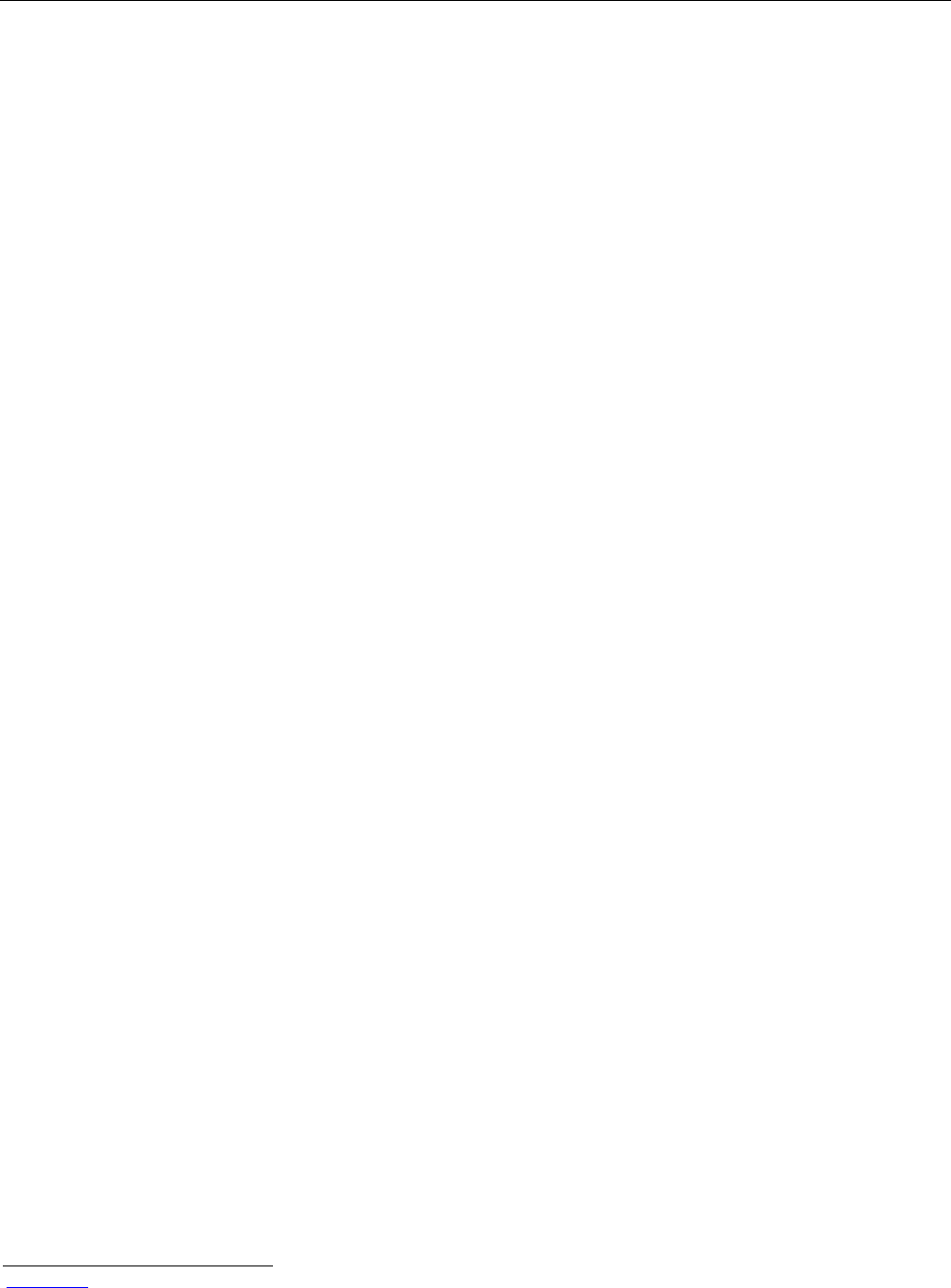
ISSN 2220-8488 (Print), 2221-0989 (Online) ©Center for Promoting Ideas, USA www.ijhssnet.com
166
education either partially or totally, as their parents were not able to fully finance their education. Some of these
expressed the negative consequences of self-sponsorship on their studies. They claimed that it retards the time
allotted for personal study and also affects their keen concentration on their studies with some commenting on the
meagerness of the self-generated income. 5 students who claim to solely depend on their parents to finance their
education aver that the recessive state of the country inadvertently affected the financial ability of their parents.
About 20% claimed not to have any problem with financing their education at all while the remaining students
chose not to respond to questions on their parents’ financial status. The situation is further aggravated by lack of
opportunities for the students to get holiday jobs and other means of financial support within the institution. To
buttress further, the State of Osun is largely agrarian, without major factories or other income generating
revenues, this further complicates the issue of self-sponsorship of the students.
.
3 School Fees and Accommodation at the Obafemi Awolowo University (OAU), Ile-Ife Nigeria
The prospectuses extracted from the official website of the OAU
6
, designated for the financial implication of any
course/discipline of study at the Obafemi Awolowo University, Ile-Ife vividly stipulate the varying fees allotted in
accordance with the different faculties in the institution namely Law, Arts, Social Sciences, Administration,
Education (Arts/Sciences), Science, Environmental Design and Management, Technology, Agriculture, Basic
Medical Sciences, Clinical Science, Dentistry and Pharmacy.
According to the prospectus, the school management presents adequate details on resumption, operating calendar,
procedures for payment of school fees and miscellaneous expenses. Resourceful information is also provided
regarding the requirements for fresh students, screening exercise, accessing of e-portal (the electronic portal for
registration) and bed-space allocation. The prospectus seems so comprehensive and helpful for both
undergraduate and returning students if carefully followed. These details are explicitly stated and accessible for
the benefits of both local and foreign students who intend to study in the university. Another factor that
contributes to the extent of payment or the expenses is the status of the student; whether they are fresh
undergraduates or returning undergraduates.
The prospectuses used for the purpose of this study are representations of the 2015/2016 and 2016/2017 sessions
respectively. The fees and miscellaneous expenses expected to be remunerated to the school by fresh and
returning students of all faculties per session as stated in the institution’s prospectuses is represented below:
Fresh Students in Faculty of Law/Arts/Social Sciences/Admin/Edu. Arts- #64,790 (first year)
Fresh Students in Faculty of Science/Edm/Edu. Science/Tech/Agric- #75,790 (first year)
Fresh Students in Faculty of Basic Medical Sciences/ Clinical Science/ Dentistry/Pharmacy- #78,790 (first
year)
Diploma in Local Government Studies in Faculty of Administration - #67,990
Returning Undergraduates in Faculty of Law/Arts/ Social Sciences/Admin/Edu. Arts- #22,290
Returning Undergraduates in Faculty of Science/EDM/Edu. Science/Tech/Agric- #33, 290
Returning Undergraduates Students in Faculty of Basic Medical Sciences/Clinical Science/
Dentistry/Pharmacy- #33,290
Diploma in Local Government Studies in Faculty of Administration- #59,490
Moreover, it is important to emphasize that the estimated payment above does not include accommodation fee of
#3,090 per session, because not all the students will be accommodated by the university. From the above, it
should also be noted that the fees paid by the students gradually decline after the first year, which suggests that
the highest amount of money to be spent by the students is spent in the first year of the programme. However, this
is usually not the case. For students of French, German or Portuguese at the university for example, the fees
displayed in the prospectus represent the least amount they will spend to be able to complete their studies.
3.1 School fees for the Faculty of Arts (years one to four)
As stated in the prospectus earlier stated, the amount required as fees for students of the faculty of Arts to which
the Department of Foreign Languages belong is #64,790 (first year) while returning undergraduates (years 2,3,4)
are expected to pay #22,290 each. These fees are usually fixed and students do not usually spend more except for
6
www.eportal.oauife.edu.ng
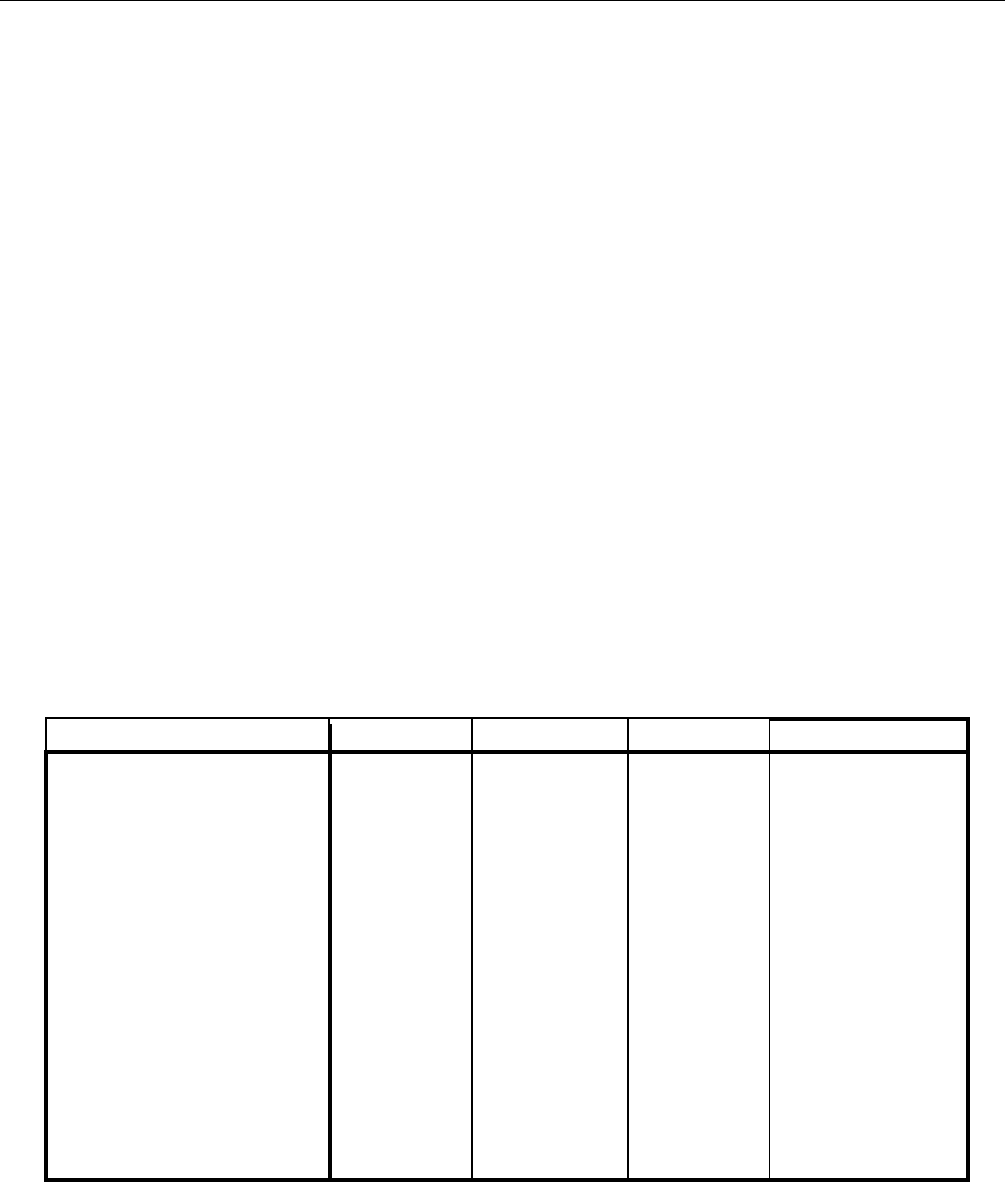
International Journal of Humanities and Social Science Vol. 8 • No. 9 • September 2018 doi:10.30845/ijhss.v8n9p15
167
administrative charges paid on various access cards and other bank services from the bank used as a medium of
payment.
3.2 Accommodation
One should not be misled by the pausal amount (#3,090) collected from the students for the use of the university
hostels as many students spend much more on accommodation despite the fact that freshly admitted students and
final year students are given priority when the allocation of university hostels is concerned. Others have to
undergo a ballot system, where the very few remaining rooms are distributed by ballot. This leaves most of these
other students resorting to sharing best spaces with friends and well-wishers while those who are not able to get
such opportunity or are not willing to go through the unpleasant situation of “squatting” in the often overcrowded
rooms resort to renting rooms in private hostels. In fact, in the current 2017/2018 session, many more students
could not be allocated rooms by the university administration due to the sanitization of the whole accommodation
system in the institution of learning and the increase in the students intake from about 3,000 to about 8,000 for the
session. Out of about 8,000 students admitted into the university, only about a quarter of them could be
accommodated in the university hostels. Those who were not allocated rooms had to rent rooms in privately
owned hostels and houses both within and outside the university campus. Some students also illegally rent boys
quarters from some members of staff for as high as #120,000 for a room. However, some are lucky to get such
rooms free from members of staff who are either their relatives or close family friends.
4 Accommodation, Books, Transportation, Learning Materials, Internet Facilities and Other Expenses.
Based on the data collected from the administered questionnaire, the actual amount spent by students of the
Department of Foreign Languages, Obafemi Awolowo University will be presented and discussed.
4.1 Year One
Tables 1-7 show the amount spent by newly admitted students of French (FR), German (GM) and Portuguese
(PR) at the Obafemi Awolowo University on accommodation, books, transportation, photocopy, internet and
other expenses.
Table 1: Accommodation (Year One)
Table 1 reveals that significant percentage of the students, specifically from the French unit with few from the
German unit declined to express the information regarding the amount spent on accommodation.
On the other hand, a commendable number of students fell between the 1000-5000 range with 26.54% of them
from French, 33.33% from German unit and 11.11% from Portuguese unit. This conspicuously depicts that most
of the students were able to get accommodation in the university. However, those who are unable to get a
university accommodation pay at least #20,000 per semester either in buying bed spaces from students who were
Language
FR
GM
PR
Total
Amount(in
#)
yr1accom
no response
16 (9.88%)
4 (2.47%)
0 ( 0% )
20 (12.35%)
10,000-20,000
0 ( 0% )
1 (0.62% )
0 ( 0% )
1 (0.62% )
20,000-30,000
2 (1.23% )
1 (0.62% )
0 ( 0% )
3 (1.85% )
30,000-40,000
4 (2.47% )
1 (0.62% )
0 ( 0% )
5 (3.08% )
40,000-50,000
2 (1.23% )
0 ( 0% )
0 ( 0% )
2 (1.23% )
60,000-70,000
1 (0.62% )
1 (0.62% )
1 (0.62% )
3 (1.85% )
70,000-80,000
1 (0.62% )
1 (0.62% )
0 ( 0% )
2 (1.23% )
80,000-90,000
1 (0.62% )
1 (0.62% )
1 (0.62% )
3 (1.85% )
90,000-100,000
0 (0%)
1 (0.62% )
0 (0%)
1 (0.62% )
1,000-5,000
43 (26.54%)
54 (33.33% )
18 (11.11% )
115 (70.98%)
5,000-10,000
1 (0.62% )
2 (1.23%)
0 (0%)
3 (1.85%)
below 1,000
0 (0%)
4 (2.47%)
0 (0%)
4 (2.47%)
Total
71
71
20
162
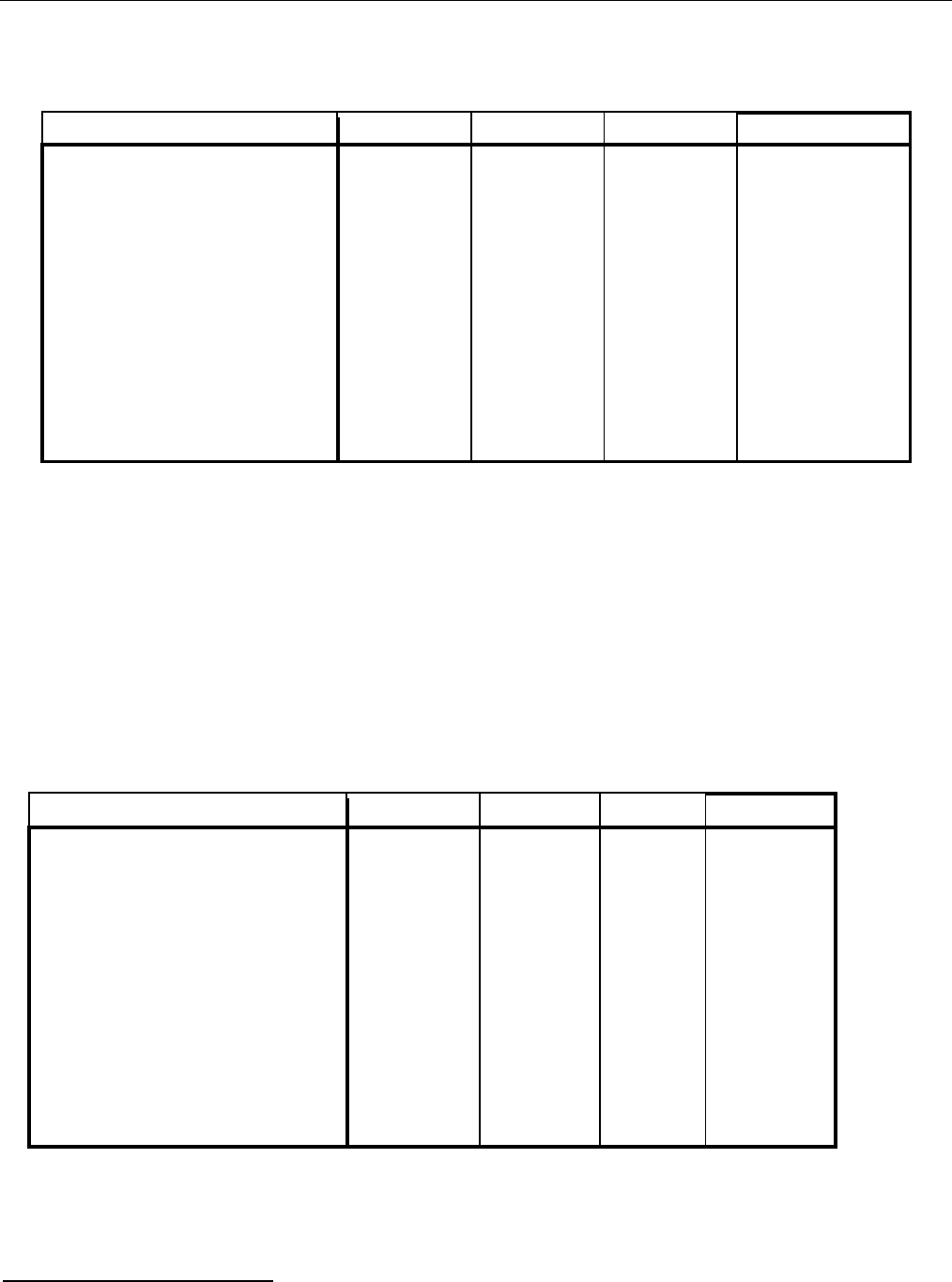
ISSN 2220-8488 (Print), 2221-0989 (Online) ©Center for Promoting Ideas, USA www.ijhssnet.com
168
fortunate to be allocated one but would rather sell
7
, or pay exorbitant prices for rooms in the various private
hostesses around the university vicinity or in the Ile-Ife city.
Table 2: Books (Year One)
Language
FR
GM
PR
Total
amount (in #)
yr1books
no response
13 (18.57% )
10 (14.08%)
4 (20.0% )
27 (52.65%)
10,000-20,000
15 (9.32% )
16 (9.94% )
0 (0%)
31 (19.26%)
20,000-30,000
5 (3.11%)
0 ( 0% )
0 (0%)
5 (3.11%)
30,000-40,000
4 (20.0%)
1 (0.62%)
0 ( 0% )
5 (3.11%)
60,000-70,000
1 (0.62%)
1(0.62%)
0 ( 0% )
2 (1.24%)
90,000-100,000
0 (0%)
1 (0.62%)
0 ( 0% )
1 (0.62%)
1,000-5,000
7 (4.35%)
8 (4.97%)
4 (20.0% )
19 (11.8%)
5,000-10,000
25 (15.53%)
33 (20.50%)
11 (6.83%)
69 (42.86%)
below 1,000
0 ( 0% )
1 (0.62%)
1 (0.62%)
2 (1.24%)
Total
70
71
20
161
From this table, 27 (52.65%) freshmen avow their unwillingness to disclose the amount expended on books with
null response while a noticeable number of freshmen spend within the range of #1000-#5000. This presumes that
some other resourceful materials which might contribute to their learning might have been sourced online which
inadvertently leads to the reduced expenditure on hard copies of books. Another key informational content
explicated on the table is that 69 (42.86%) of them spend between #5,000 to #10,000 naira on books respectively
with a reasonable percentage of them emerging from each unit. This is to affirm that the access to internet
facilities by the students may have a positive impact on the estimated expenditure initially allotted to the purchase
of books. In addition, students are allowed to make copies of books available in the departmental library or from
personal copies of their lecturers for the purposes of their personal studies. However some students rely solely on
notes and other materials provided by their lecturers during lectures. It is worthy of note that a student of German
claim to spend between #90,000 to #100,000. As outrageous as this might look, it is very likely that this student
decided to order textbooks, dictionaries and CDs from Germany, due to the unavailability of these in Nigeria.
Table 3: Transportation (Year One)
Language
FR
GM
PR
Total
amount (in #)
yr1transportation
no response
22 (13.66%)
12 (7.45%)
6 (3.73%)
40 (24.82%)
10,000-20,000
9 (5.59%)
7 (4.35%)
0 ( 0% )
16 (9.94%)
20,000-30,000
4 (2.48%)
3 (1.86%)
0 (0%)
7 (4.35%)
30,000-40,000
0 (0% )
1 (0.62%)
0 (0% )
1 (0.62%)
40,000-50,000
2 (1.24%)
0 (0% )
0 (0% )
2 (1.24%)
50,000-60,000
1 (0.62%)
0 (0% )
0 (0% )
1 (0.62%)
1,000-5,000
27 (16.77%)
33 (20.50%)
5 (3.11%)
65 (40.38%)
5,000-10,000
5 (3.11%)
9 (5.59%)
0 (0% )
14 (8.7%)
below 1,000
1 (0.62%)
5 (3.11%)
9 (9.59%)
15 (13.32%)
Total
71
70
20
161
7
This practice is however illegal as those caught will lose their rights to the allocated room and that of getting accommodation in future. The buyer also forfeits both the room and the amount paid for it.
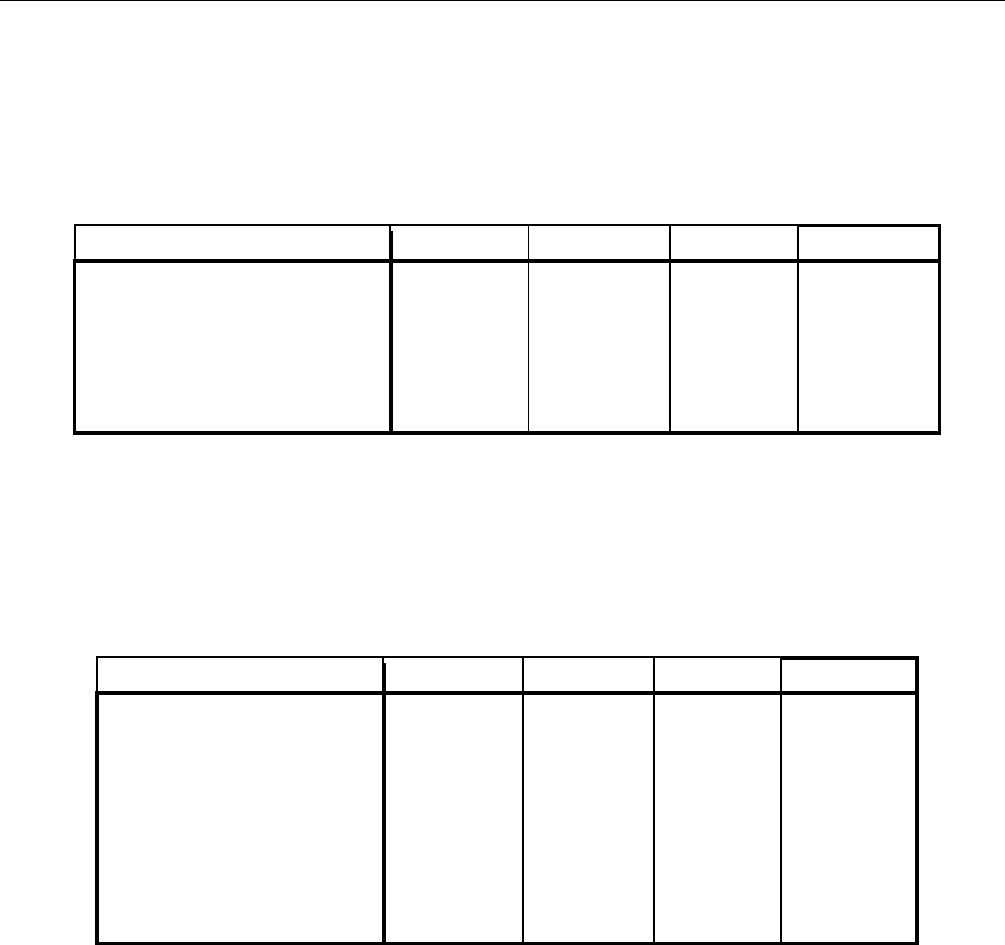
International Journal of Humanities and Social Science Vol. 8 • No. 9 • September 2018 doi:10.30845/ijhss.v8n9p15
169
From the table, 65 (40.38%) freshmen spend within the range of #1,000-#5,000 on transportation with 27
(16.77%) from French unit, 33 (20.50%) from the German unit and 5 (3.11%) of them from Portuguese. This
reflects the high number of students who were able to get accommodation in the university and therefore only
needed to move within the university campus and occasionally outside the campus for shopping or religious and
other social activities. The few who claim to spend more reflect those who are accommodated outside the
university and those who had to travel home often for personal reasons.
Table 4: Photocopy (Year One)
From this table, it can be deduced that 29 (18.01%) freshmen with almost proportional representation from the
three units: French, German and Portuguese declined information regarding their expenses on photocopy. A
recognizable number of 70 (43.48%) students spend within the range #1,000-#5,000 naira on photocopy.
Although the act of photocopying may be perceived as an infringement on the author’s copyright, it must also be
categorically stated that the restricted access of original copies of these foreign books by native authors, amongst
other factors, contribute to the high rate of photocopying in Nigerian universities.
Table 5: Internet Facilities (Year One)
The table reveals that 85 (52.8%) freshmen affirm that they spend not more than #5,000 naira on internet
subscription, 19 (11.8%) of them claim they spend as much as #10,000 naira in their usage of internet, 8 (4.96%)
of them claim to spend less than #1,000 naira. 5 (3.1%) students claim they spend between #10,000 to #20,000
while 3 (1.86%) students spend between #20,000 to #30,000. Obafemi Awolowo University boasts of a relatively
affordable internet access particularly to students and the university community in general. However, it is
believed that some students use the internet for sundry activities other than research and as a result pay higher
rates hence the high rates claimed by some of the respondents. It should in addition be noted here that the advent
of Information and Communication Technology (ICT) has greatly enhanced academic activities for lecturers as
well as their students over the years.
Language
FR
GM
PR
Total
amount (in #)
yr1
photocopy
no response
18 (11.18%)
6 (3.73%)
5 (3.11%)
29 (18.01%)
1,000-5,000
38 (23.60%)
27 (16.77%)
5 (3.11%)
70 (43.48%)
5,000-10,000
7 (4.35%)
6 (3.73%)
3 (1.86%)
16 (9.94%)
below 1,000
8 (4.97%)
31 (19.25%)
7 (4.35%)
46 (18.57%)
Total
71
70
20
161
Language
FR
GM
PR
Total
Amount
(in #)
yr1
internet
no response
24 (14.91%)
13 (8.07%)
3 (1.86%)
40 (24.84%)
10,000-20,000
1 (0.62%)
4 (2.48%)
0 (0%)
5 (3.1%)
20,000-30,000
1(0.62%)
3 (1.86%)
0 (0% )
4 (2.48%)
1,000-5,000
34 (21.12%)
37 (22.98%)
14 (8.70%)
85 (52.8%)
5,000-10,000
8 (4.97%)
9 (5.59%)
2 (1.24%)
19 (11.8%)
below 1,000
3 (1.86%)
4 (2.48%)
1 (0.62%)
8 (4.97%)
Total
71
70
20
161
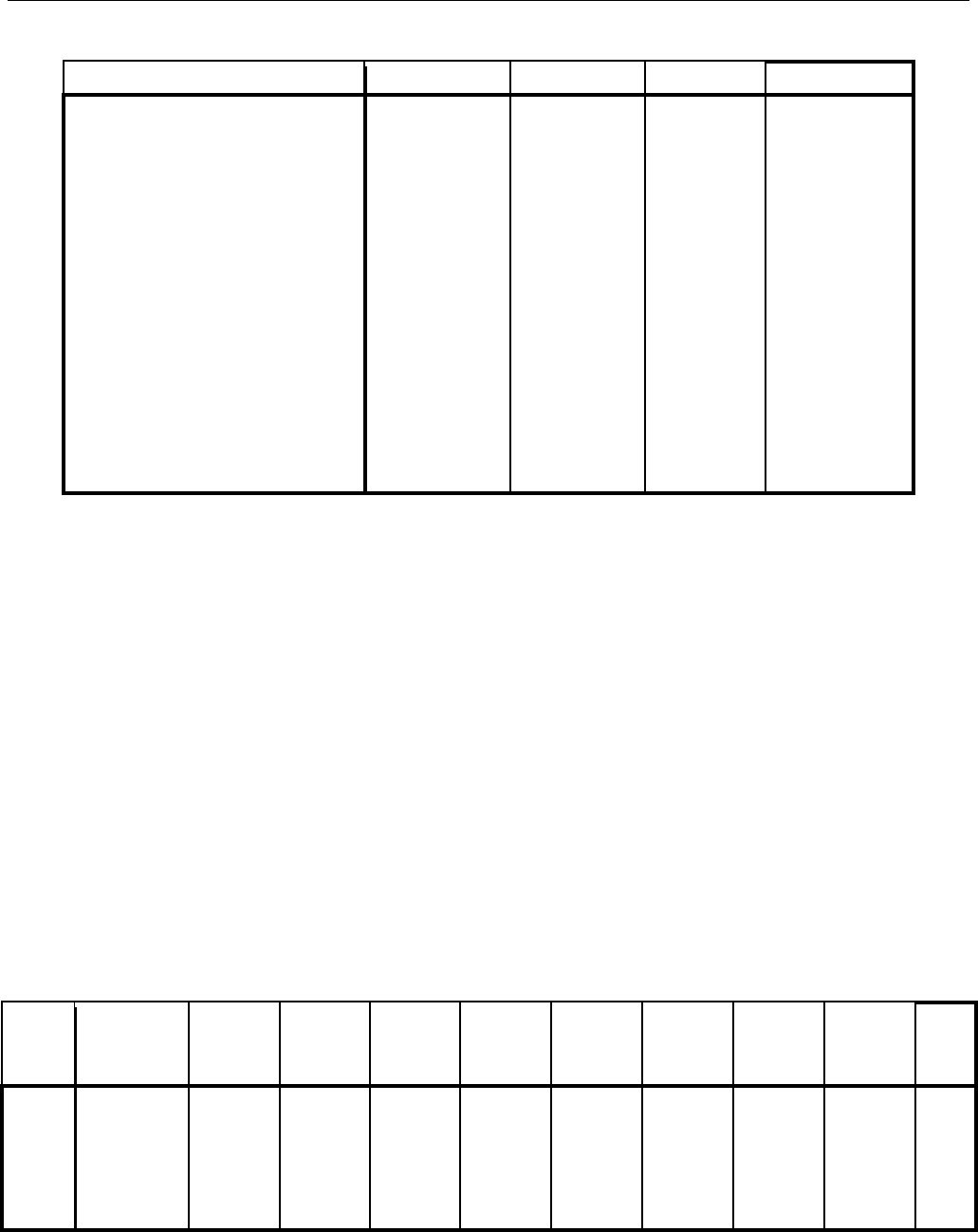
ISSN 2220-8488 (Print), 2221-0989 (Online) ©Center for Promoting Ideas, USA www.ijhssnet.com
170
Table 6: Others (Year One)
Table6 explicates that while 100 (62.11%) freshmen would rather not disclose how much they spend on other
matters, 21(13.04%) of them state that they spend up to 30,000 naira on sundry expenses. However, just a student
(0.62%) claims to spend above 100,000 naira on other matters. This student is probably accommodated outside
the university and pays electricity bills and other bills related to rented houses in the city. In addition, the cost of
clothes, shoes, food items and other basic necessities for a student who is solely responsible for his/her own
welfare could be really high. It should also be noted that some students spend a lot in preparation for the
matriculation party for fresh students, although this depends solely on the individual student and not compulsory
for all of them.
4.2 The financial requirements for the second year
In the second year, students usually spend less than what they spent in their first year since there is no longer the
need to pay fees like acceptance fees and other welcome packages prepared for newly admitted students.
However, many still end up paying more on accommodation as only freshly admitted students and final year
students are given priority when the allocation of university hostels is concerned. Many students in the second
year often resort to sharing best spaces with friends and well-wishers while those who are not able to get such
opportunity or are not willing to go through the unpleasant situation of “squatting” in the often overcrowded
rooms resort to renting rooms in private hostels. Tables 8-14below show the financial demands on students of
French, German and Portuguese in the second year of their studies at the Obafemi Awolowo University on
accommodation, books, transportation, Photocopy, internet and other expenses.
Table 7: Accommodation (Year Two)
Language
FR
GM
PR
Total
amount (in #)
yr1others
no response
56 (34.79%)
43 (26.7%)
1 (0.62%)
100 (62.11%)
10,000-20,000
6 (3.73%)
3 (1.86%)
4 (2.48%)
13 (8.01%)
20,000-30,000
4 (2.48%)
11 (6.83%)
6 (3.73%)
21 (13.04%)
30,000-40,000
0 (0%)
4 (2.48%)
1 (0.62%)
5 (3.1%)
40,000-50,000
1 (0.62%)
1 (0.62%)
0 (0%)
2 (1.24%)
50,000-60,000
1 (0.62%)
0 (0%)
0 (0%)
1 (0.62%)
60,000-70,000
0 (0%)
1 (0.62%)
0 (0%)
1 (0.62%)
above 100,000
0 (0%)
1(0.62%)
0 (0%)
1(0.62%)
1,000-5,000
0 (0%)
4 (2.48%)
2 (1.24%)
6 (3.73%)
5,000-10,000
3 (1.86%)
2 (1.24%)
2 (1.24%)
7 (4.34%)
below 1,000
0 (0%)
0 ( 0% )
4 (2.48%)
4 (2.48%)
Total
71 (44.1%)
70 (43.48%)
20 (12.42%)
161 (100%)
amount
(in #)
no
response
10,000-
20,000
20,000-
30,000
30,000-
40,000
40,000-
50,000
50,000-
60,000
60,000-
70,000
5,000-
10,000
below
1,000
Total
Language
FR
33(20.25%)
1(0.61%)
7(4.29%)
6(3.68%)
2(1.23%)
1(0.61%)
2(1.23%)
1(0.61%)
0 (0%)
71
GM
37(22.98)
1(0.61%)
0( 0% )
3(1.84%)
2(1.23%)
2(1.23%)
2(1.23%)
1(0.61%)
1(0.61%)
72
PR
16(9.82%)
0( 0% )
0( 0% )
0 (0%)
0(0%)
0( 0% )
0 ( 0% )
0(0% )
0(0%)
20
Total
86(53.05%)
2(1.23%)
7(4.29%)
9(5.52%)
4(2.46%)
3(1.84%)
4(2.46%)
2(1.23%)
1(0.61%)
163
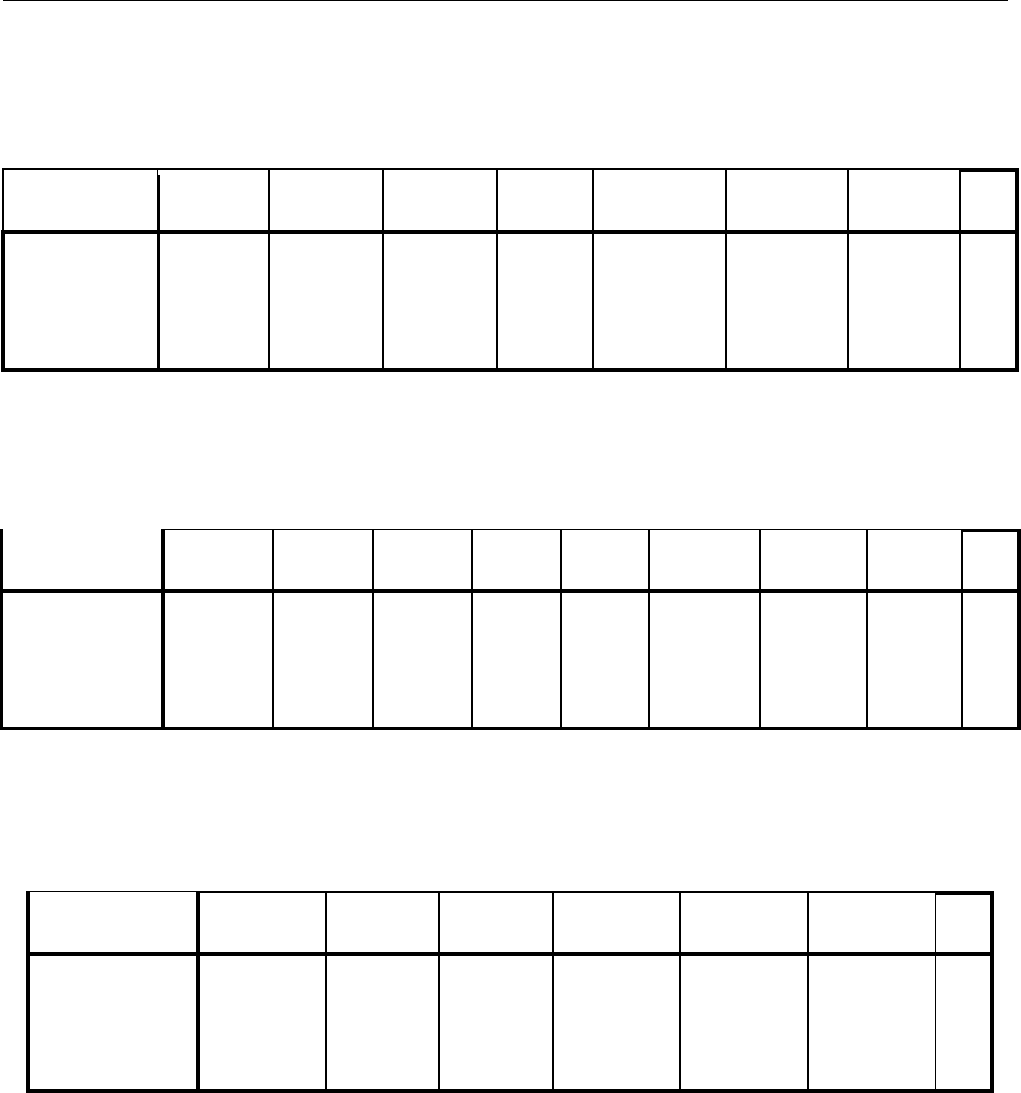
International Journal of Humanities and Social Science Vol. 8 • No. 9 • September 2018 doi:10.30845/ijhss.v8n9p15
171
From the table, it can be noted that out of the 163 students in the second year, the highest number of the
respondents 86 (52.76%) did not disclose how much they pay for their accommodation. Of the remaining 32
respondents, 29 (17.79%) claim to pay between #10,000-#70,000 while 3 (1.84%) state that they pay a maximum
of #10,000 for their accommodation.
Table 8: Books (Year Two)
The table clearly states that out of the 163 students in the second year, 10 (6.13%) claim to pay between #10,000-
#40,000 on books per session, while 27 (16.56%) of them declared they pay between #1,000 to #5,000 and 32
(19.63%) students affirm they do not pay beyond #10,000 per session. A majority of 94 (57.67%) students
however did not disclose how much they spend on books in the second year.
Table 9: Transportation (Year Two)
amount (in #)
yr2transportation
no response
10,000-
20,000
20,000-
30,000
30,000-
40,000
40,000-
50,000
1,000-
5,000
5,000-
10,000
below
1,000
Total
Language
FR
38(23.31%)
8(4.91%)
5(3.07%)
0 (0%)
2(1.23%)
9(5.52%)
8 (4.91%)
1(0.61%)
71
GM
33(20.24%)
5(3.07%)
7(4.29%)
3(1.84%)
0 (0% )
8(4.91%)
14(8.59%)
2(1.23%)
72
PR
16(9.82%)
0 (0%)
2(1.23%)
0 (0% )
0 (0% )
1(0.61%)
0 (0%)
1(0.61%)
20
Total
87(53.37%)
13(7.98%)
14(8.59%)
3(1.84%)
2(1.23%)
18(11.04%)
22(13.5%)
4(2.45%)
163
Table 9 clearly reveals that out of the 163 students in the second year, 32 (19.63%) claim to pay between 10,000-
50,000 naira per session for their transportation, while 44 (26.99%) of them declared they pay not more than
10,000 naira per session. The disparity could be as a result of those students staying away from the university
campus. A majority of 87 (53.37%) students however did not disclose how much they pay for transportation in
the second year.
Table 10: Photocopy (Year Two)
This table clearly shows that out of the 163 students in the second year, 6 (3.68%) claim to pay between 10,000-
50,000 naira for photocopy per session, while 72 (44.17%) of them declared they pay a maximum of 10,000 naira
per session. A majority of 85 (52.15%) students however did not disclose how much they pay for photocopy in
the second year.
amount (in #)
yr2books
no response
10,000-
20,000
20,000-
30,000
30,000-
40,000
1,000-5,000
5,000-
10,000
below
1,000
Total
Language
FR
38(23.31%)
5(3.07%)
0 (0%)
0 (0%)
14 (8.59%)
13 (7.97%)
1(0.61%)
71
GM
40(24.53%)
3(1.84%)
1(0.61%)
1(0.61%)
13 (7.97%)
12 (7.36%)
2 (1.23%)
72
PR
16(9.82%)
0 (0%)
0 (0%)
0 (0%)
0 (0%)
3 (1.84%)
1(0.61%)
20
Total
94(57.66%)
8(4.91%)
1(0.61%)
1(0.61%)
27(16.56%)
28(17.17%)
4 (24.5%)
163
amount (in#)
yr2photocopy
no response
10,000-
20,000
40,000-
50,000
1,000-
5,000
5,000-
10,000
below
1,000
Total
Language
FR
32(19.63%)
3 (1.84%)
1 (0.61%)
21(12.88%)
8(4.91%)
6(3.68%)
71
GM
37 (22.70%)
2 (1.23%)
0 (0%)
16 (9.82%)
5 (3.07%)
12 (7.36%)
72
PR
16 (9.82%)
0 (0%)
0 (0%)
0 (0%)
0 (0%)
4 (2.45%)
20
Total
85 (52.15%)
5 (3.07%)
1(0.61%)
37 (22.70%)
13 (7.98%)
22 (13.49%)
163
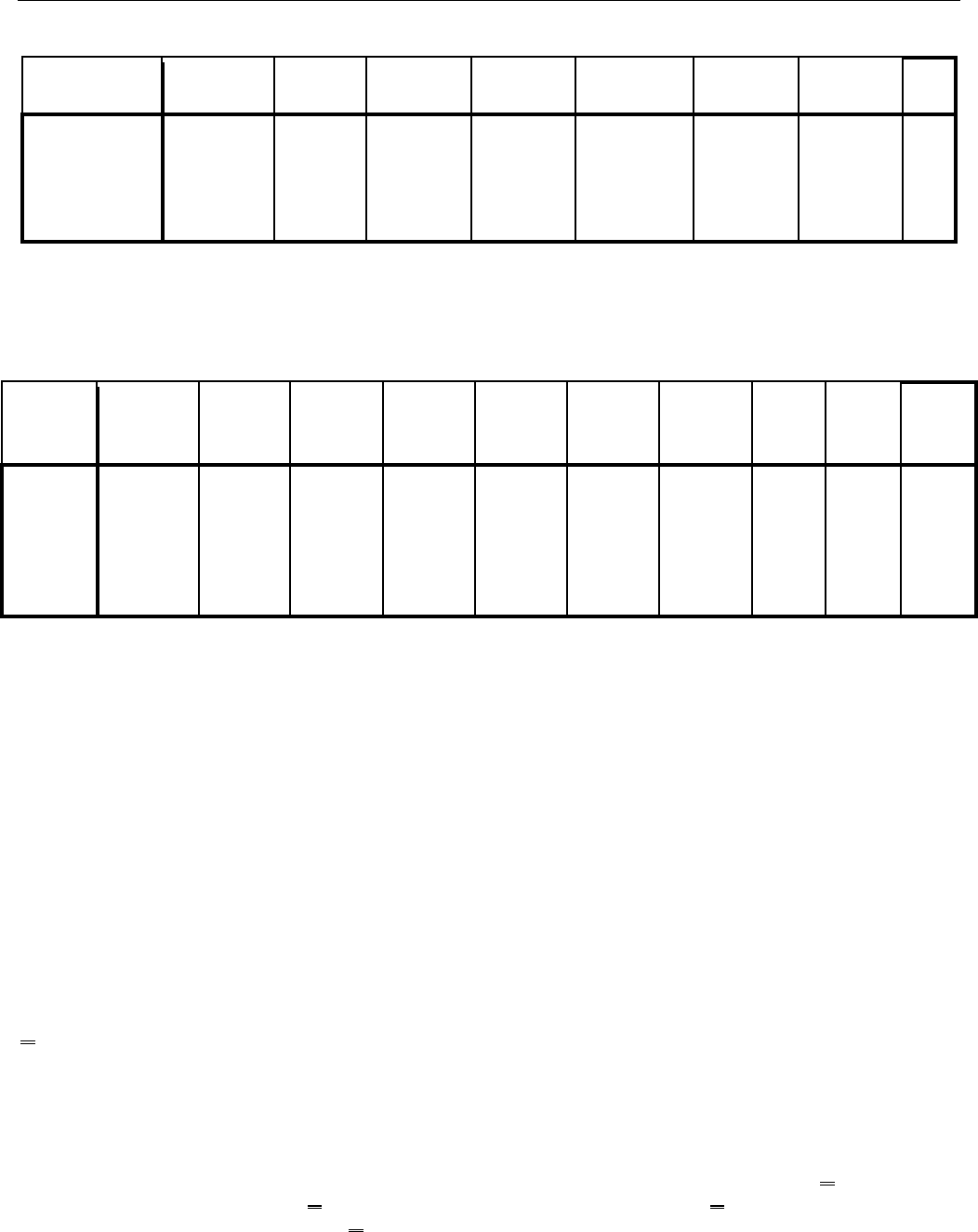
ISSN 2220-8488 (Print), 2221-0989 (Online) ©Center for Promoting Ideas, USA www.ijhssnet.com
172
Table 11: Internet (Year Two)
The table clearly states that out of the 163 students in the second year, 11 (6.75%) claim to pay between #10,000-
40,000 naira for internet activities, while 57 (34.97%) of them declared they spend not more than #10,000 naira
on internet activities per session. A majority of 95 (58.28%) students however did not disclose how much they
spend on internet activities in their second year.
Table 12: Others (Year Two)
Table 12 clearly reveals that out of the 163 students in the second year, 16 (9.82%) claim to spend a minimum of
#10,000 and a maximum of #70,000 while a student claim to spend above #100,000 on other necessities in their
second year. 9 (5.52%) of them declared they spend between #1,000 and #10,000 naira on other necessities of life.
A majority of 135 (82.82%) students however were silent.
4.3 The Financial Implication of Completing The Year Abroad Programme (YAP) and The Equivalent Year
Abroad Programme (EYAP) for Students in The Third Year
The third year for students of the Department of Foreign Languages is also known as the Year-Abroad. The
students undergo a language immersion programme in other institutions within and outside the country. For the
students of French, the year abroad programme is spent at the Nigeria French Language Village (NFLV),
Badagry, the students of German spend the time at the Goethe Institute, Lagos while the students of Portuguese
have to study at the Federal University of Bahia (UFBA), Salvador in Brazil for the programme. Although it is
clearly stated on the JAMB bronchure that students intending to study any of these languages would be required
to spend a year abroad, many are hardly prepared mentally for the real financial implication of this programme,
especially the Portuguese programme.
For the EYAP at the Nigerian French Language Village in Badagry, students are asked to pay a subsidized rate of
N150,000 for the entire one year, which takes care of their school fees and accommodation. Since the students
reside within the institutions premises, they do not spend money on transportation (except for occasional
excursions to neighbouring francophone countries to practice the French language and to do some shopping as
desired, which may not cost them more than #30,000, although they must bear their travel expenses to and fro
Badagry. Students are also expected to buy food at the institution’s canteen at a cost as cooking is not allowed.
The students of German on EYAP at the Goethe Institute, Lagos are required to pay a total of N152,000 which
included payment for course fees (N55.000 per semester) for the course books (N 6,000 per semester), for the
international examinations B1 and B2 (N15,000 each). Those who fail any of the exams at the first attempt have
the possibility of rewriting it the second time for the same price they paid at the first attempt. The major problem
for the students of German however is the issue of accommodation, which the Goethe Institute does not offer any
amount (in #)
yr2internet
no response
10,000-
20,000
20,000-
30,000
30,000-
40,000
1,000-5,000
5,000-
10,000
below
1,000
Total
Language
FR
38(23.31%)
5(3.07%)
1(0.61%)
0(0% )
19 (11.66%)
5 (3.07%)
3 (1.84%)
71
GM
40(24.54%)
4(2.45%)
0 (0%)
1 (0.61%)
16 (9.82%)
7 (4.29%)
4 (2.45%)
72
PR
17(10.43%)
0 (0%)
0 (0%)
0 (0%)
2 (1.23%)
0 (0%)
1 (0.61%)
20
Total
95(58.28%)
9(5.52%)
1 (0.61%)
1 (0.61%)
37 (22.71%)
12(7.36%)
8 (4.9%)
163
amount
(in #)
yr2
no
response
10,000-
20,000
20,000-
30,000
30,000-
40,000
40,000-
50,000
60,000-
70,000
above
100,000
1,000-
5,000
5,000-
10,000
Total
Language
FR
60(36.81%)
3(2.45%)
0 (0%)
0 (0%)
0(0%)
1(0.61%)
0 (0%)
4 (2.46%)
3(1.84%)
71
GM
59(36.20%)
1(0.61%)
2(1.23%)
2(1.23%)
1(0.61%)
1(0.61%)
1(0.61%)
1(0.61%)
1(0.61%)
69
PR
16(9.82%)
1(0.61%)
2(1.23%)
0 (0%)
1(0.61%)
0(0%)
0 (0%)
0 (0%)
0 (0%)
20
Total
135(82.83%)
5(3.06%)
4(2.46%)
2(1.23%)
2(1.23%)
2(1.23%)
1(0.61%)
5(3.06%)
4(2.46%)
160
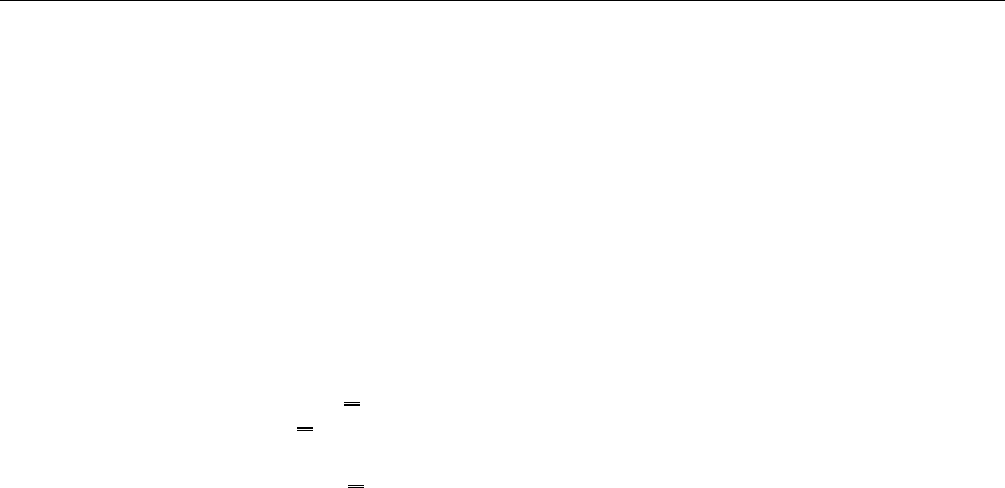
International Journal of Humanities and Social Science Vol. 8 • No. 9 • September 2018 doi:10.30845/ijhss.v8n9p15
173
of its students. Efforts made by the various universities to procure a suitable accommodation, which will
accommodate all the students and be near enough to the Goethe Institute at a price that would be affordable for
the students have been so far in vain. Therefore, students of German have to find their own accommodation
throughout their stay for the EYAP in Lagos. The amount they spend therefore on accommodation is therefore
better imagined, as apartments and single rooms cost a lot in Lagos, especially in Lagos Island where the Institute
is situated and its vicinity. Accommodation can therefore cost well over #100,000 for the entire EYAP year.
Students of Portuguese who travel to Brazil have only one advantage above the others; they do not have to pay
school fees, because the University of Bahia in Salvador is a Federal university in Brazil and is therefore tuition
free. However, the Department requires that for any student to proceed on the YAP in Brazil, he or she must have
a minimum of 1,500 US Dollars which is equivalent to #547,500 for their living expenses, which does not include
the compulsory insurance, transportation and photocopies. Therefore, an additional 500 Dollars (about 182,500
naira) would be necessary for these and other emergencies. Although the Federal government of Nigeria has
provided accommodation for the students in Bahia, they still have to pay for utility bills like electricity and gas,
which depends on their collective consumption. In addition to this, they must pay for their return tickets to and fro
Brazil as well as for the visa fees of N20,000. For those without an international passport, they would have to
obtain one at the official price of N30,000.
It should be noted that apart from the subsidy already given to the students of French by the Federal government
of Nigeria, which limited their fees to N150,000, there is no scholarship from the Nigerian government available
for students for either the YAP in Brazil or the EYAP in Nigeria.
Students combining with other languages or other disciplines (e.g. English, Education or any of the other two
foreign languages available in the Department however pay only half the cost, since they are required to spend
only one semester at the institute designated for their EYAP or YAP.
3.4.The Final Year and Convocation Processes
In the fourth year, which is the final year, the students are expected to return to the university to complete the 4-
year degree programme. It should be noted that not all the students get to spend exactly 4 years for the programme
for different reasons. Some reasons are due to poor performance of the students concerned, which lead to their
spending a minimum of 1 and a maximum of 4 extra semesters. This of course is not limited to students of foreign
languages at the university. However, there are other factors which often lead to students spending more time than
required before completing their studies which the students themselves have not control over. Some of these are:
1. Inability to proceed on the year abroad programme on time
2. Inability to register for the third year as required
3. Inability to register for all the required units for the completion of the B.A. programme
4. Inability to complete the Long Essay on time
5. Financial/psychological and social issues which may be a reflection of poverty.
Tables 13-18 state the amount spent by part 4 students of the Department of Foreign Languages, Obafemi
Awolowo University in their final year.
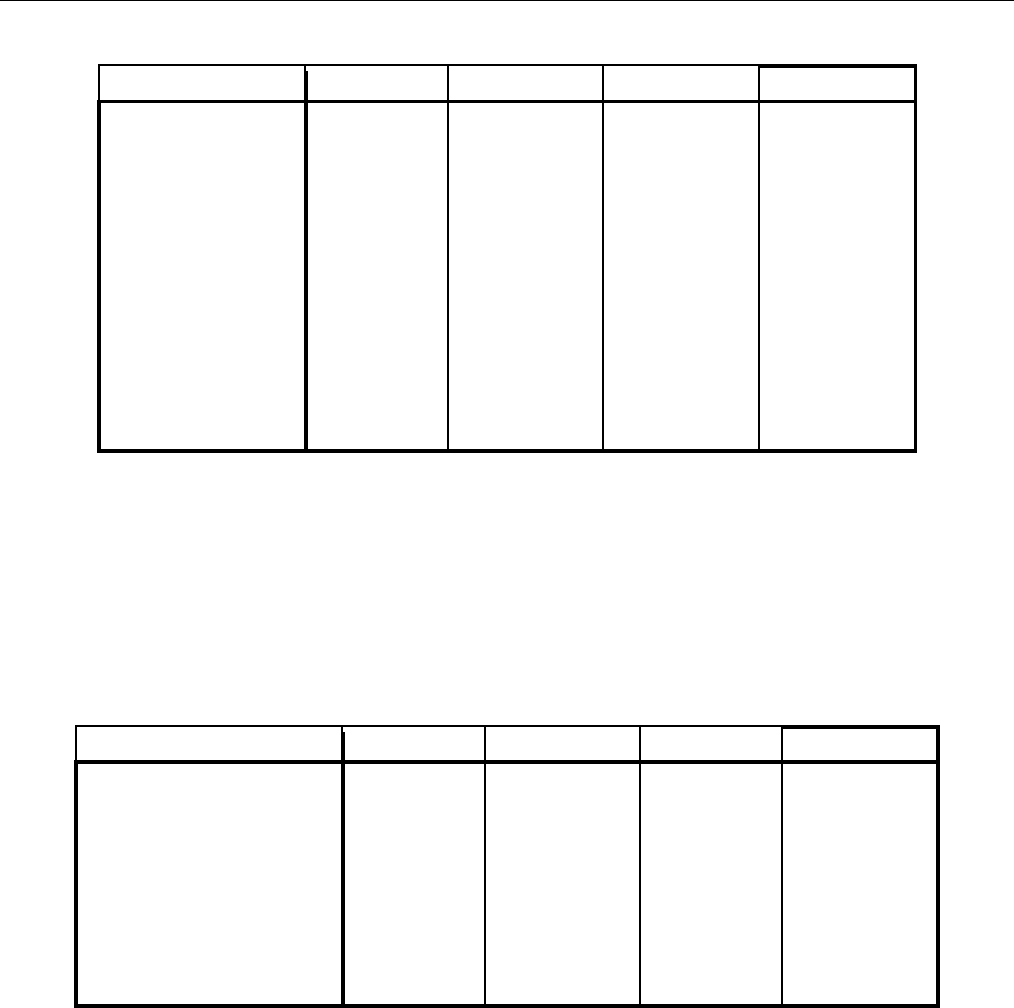
ISSN 2220-8488 (Print), 2221-0989 (Online) ©Center for Promoting Ideas, USA www.ijhssnet.com
174
Table 13: Accommodation (Year Four)
From the table, 15 (11.1%) of the respondents claim to spend between #1,000-#5,000 on accommodation while a
larger percentage of the students (72.59%) have declined to declare the exact amount they spend on
accommodation, with very few students paying as high as #80,000. This implies that the cost of accommodation
is relatively affordable for many of the respondents in their final year. However, the large number of respondents
who decline their response regarding their accommodation expenditure might have resolved to squat with their
contemporaries or belong to the group of final year students who have stayed longer than the 4 years required for
their course of choice and therefore living outside the campus with friends or relatives, this situation usually affect
their stability with their studies or result to psychological imbalance.
Table 14: Books (Year Four)
It is conspicuously projected through the table that many students in their final year do not exceed #5,000 as the
cost expenditure for their textbooks while just a student claims to spend as much as #10,000 on textbooks. This
buttresses the affordability and availability of the textbooks utilized by the students in their final year particularly
in the French unit of the department. On the other end of the continuum, the decline in purchase of textbooks by
over 100 students may also signal the limited scholarly research on foreign languages study in Nigerian
universities especially in the Portuguese section where no student claim to spend any dime on textbook.
Language
FR
GM
PR
Total
amount (in #) yr4accomodation
no response
46 (34.07%)
36 (26.67%)
16 (11.89%)
98 (72.59%)
20,000-30,000
3 (2.22%)
0 (0%)
0 (0%)
3 (2.22%)
30,000-40,000
2 ´(1.48%)
1(0.74%)
0 (0%)
3 (2.22%)
40,000-50,000
5 (3.70%)
1 (0.74%)
1 (0.74%)
7 (5.18%)
60,000-70,000
0 (0%)
1 (0.74%)
0 (0%)
1 (0.74%)
70,000-80,000
1 (0.74%)
0 (0%)
1 (0.74%)
2 (1.48%)
80,000-90,000
1 (0.74%)
0 (0%)
0 (0%)
1 (0.74%)
above 100,000
3 (2.22%)
1 (0.74%)
1 (0.74%)
5 (3.70%)
1,000-5,000
10 (7.40%)
4 (2.96%)
1 (0.74%)
15 (11.1%)
Total
71 (52.59%)
44 (32.59%)
20 (14.81%)
135 (100%)
Language
FR
GM
PR
Total
amount (in #)
yr4books
no response
50 (37.04%)
40 (29.63%)
20 (14.81%)
110 (81.48%)
10,000-20,000
5 (3.70%)
1 (0.74%)
0 (0%)
6 (4.44%)
20,000-30,000
1 (0.74%)
1 (0.74%)
0( 0% )
2 (1.48%)
1,000-5,000
13(9.63%)
1(0.74%)
0(0%)
14 (10.37%)
5,000-10,000
0 (0%)
1 (0.74%)
0 (0%)
1 (0.74%)
below 1,000
2 (1.48%)
0 (0%)
0 (0%)
2 (1.48%)
Total
71 (52.59%)
44 (32.59%)
20 (14.81%)
135 (100%)
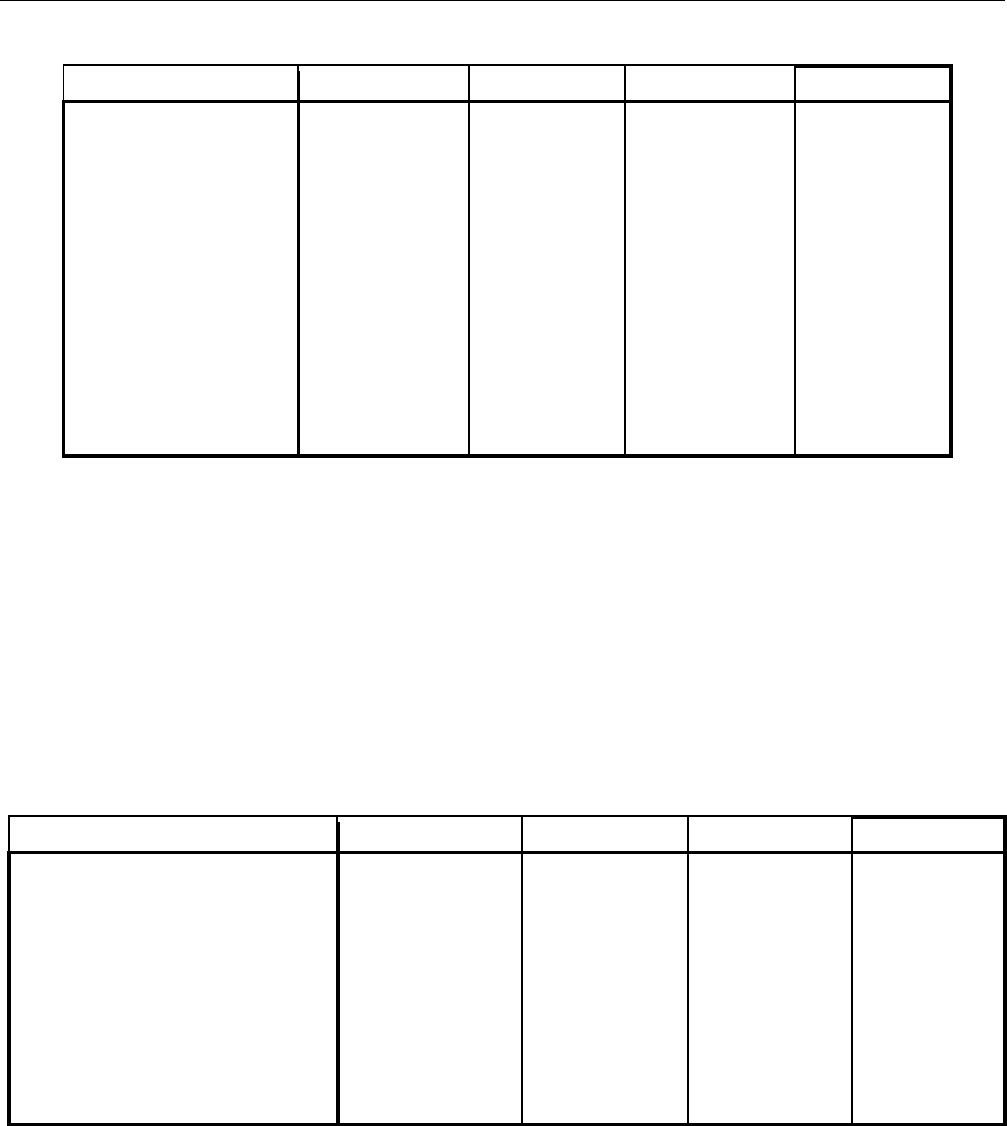
International Journal of Humanities and Social Science Vol. 8 • No. 9 • September 2018 doi:10.30845/ijhss.v8n9p15
175
Table 15: Transportation (Year Four)
Although, ObafemiAwolowo University provides residential dormitories in the school premises, the increased
number of admitted students consigns some students to seek for accommodation outside the campus. As usual, a
high number of students declined to respond to this question, which may suggest they had problems getting
accommodation in their final year. This could also be as a result of their inability to complete their EYAP/YAP on
time and therefore not being able to register on time for following session. In addition, those who are spending
extra semesters often face the psychological trauma of having to face their peers in lower levels or their friends
and therefore not disclose their places of residence. These students only come for the necessary classes and then
disappear only to turn up for tests or examinations. Nonetheless, the welfare of students is still factored into the
fixed price list for transportation from one location to another both within and outside the university premises.
However from the table above, 9 out of the 29 (31.034%) students that responded claim they do not spend more
than #5,000 on transportation.
Table 16: Photocopy (Year Four)
From this table, it can be deduced that 98 (74.24%) of the students with almost proportional representation from
the three units: French, German and Portuguese declined information regarding their expenses on photocopy,
which could be as a result of any of the problems mentioned earlier. Just a student from the German section
declares to spend as high as #10,000 and above on photocopy while a recognizable number of 21 (15.91%) of the
students spend within the range #1,000-#5,000 on photocopy. It should also be noted that the final year is the year
that students write their Long Essay, which could lead to the students making photocopies of materials needed for
writing the Essay and also for copies to be submitted to the department.
Language
FR
GM
PR
Total
amount (in #) yr4transportation
no response
51 (37.78%)
39(28.89%)
16 (11.85%)
106 (78.52%)
10,000-20,000
3 (2.22%)
1 (0.74%)
2 (1.48%)
6 (4.44%)
20,000-30,000
3 (2.22%)
0( 0% )
1 (0.74%)
4 (3.96%)
30,000-40,000
2 (1.48%)
0 (0%)
0 (0%)
2 (1.48%)
40,000-50,000
1 (0.74%)
0 (0%)
0 (0%)
1(0.74%)
50,000-60,000
1 (0.74%)
0 (0%)
0 (0%)
1 (0.74%)
1,000-5,000
6 (4.44%)
3 (2.22%)
0 (0%)
9 (6.66.%)
5,000-10,000
3 (2.22%)
1 (0.74%)
1 (0.74%)
5 (3.70%)
below 1,000
1 (0.74%)
0 (0%)
0 (0%)
1 (0.74%)
Total
71 (52.59%)
44 (32.59%)
20 (14.81%)
135 (100%)
Language
FR
GM
PR
Total
Amount
(in #) yr4
photocopy
No response
46 (34.85%)
35 (26.52%)
17 (12.88%)
98 (74.24%)
10,000- 20,000
0 (0%)
1 (0.76%)
0 (0%)
1 (0.76%)
1,000-5,000
18 (13.64%)
2 (1.52%)
1 (0.76%)
21(15.9 %)
5,000-10,000
6 (4.55%)
2 (1.52%)
2 (1.52%)
10 (7.57%)
below 1,000
1 (0.76%)
1 (0.76%)
0 (0%)
2 (1.52%)
Total
71 (53.79%)
41 (31.06%)
20 (15.15%)
132 (100%)
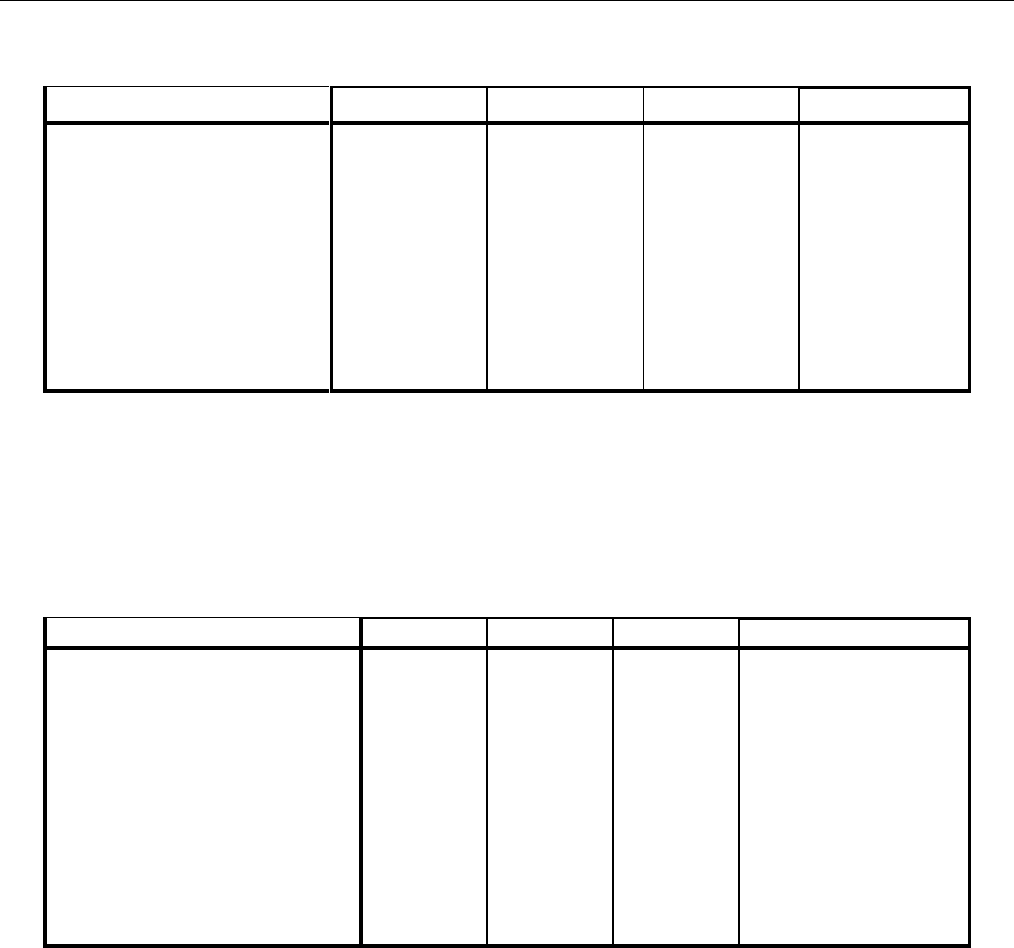
ISSN 2220-8488 (Print), 2221-0989 (Online) ©Center for Promoting Ideas, USA www.ijhssnet.com
176
Table 17: Internet (Year Four)
A large number of the students (77.69%) again failed to disclose their expenditure on internet usage. Nonetheless,
14 students (10.77%) acclaimed to have spent between #1,000 - #5,000 on the use of internet, 7 (5.38%)between
#5,000-#10,000 and 3 (2.31%) below #1,000. In spite of the silence of the majority of the students, the evidently
low amount spent by many of the students that responded to the question, clearly shows that the Obafemi
Awolowo University does not handle the provision of subsidized internet access to all and sundry on campus with
levity. It is believed that availability of affordable internet services is responsible for the enhanced research and
stimulated interest of scholars in their related fields.
Table 18: Others (Year Four)
By “others” here, we mean all other sundry expenses incurred by the students in the course of their studies. It is
apparent from table 18 that many students take their privacy in terms of purchases very seriously. This perhaps
may be the reason for the decline in their response. As a result, only 7 students responded to the question with 6
students from the French Section and one from the German Section. There was no single response from the
Portuguese group. However, 4 of the students of French affirmed that they spend as much as #10,000 on other
sundry expenses while the remaining 2 claim to spend a minimum of #50,000. The only student of German that
responded to this question claims to spend above #100,000.
The cost of the convocation celebrations
Like many other students of the university, the passing of the final papers of one’s chosen course of study is not
the end of one’s financial obligations. Students are still expected to pay for their final convocation ceremonies
even when they will be absent from the event. Those who fail to pay would not be able to collect their certificates
or transcripts from the university. This further adds to the already big burden placed on the average Nigerian
undergraduate in the pursuance of his degree.
Language
FR
GM
PR
Total
amount
(in #)
yr4internet
no response
49 (37.69%)
35 (26.92%)
17 (13.08%)
101 (77.69%)
10,000-20,000
2 (1.54%)
3 (2.31%)
0 (0%)
5 (3.85%)
1,000-5,000
12 (9.23%)
1 (0.77%)
1 (0.77%)
14 (10.77%)
5,000-10,000
5 (3.85%)
0 (0%)
2 (1.54%)
7 (5.38%)
below 1,000
3 (2.31%)
0 (0%)
0 (0%)
3 (2.31%)
Total
71 (54.62%)
39 (30%)
20 (15.38%)
130 (100%)
Language
French
German
Portuguese
Total
amountyr4others
no response
65 (51.18%)
35 (27.56%)
20 (15.74%)
120 (94.49%)
50,000-60,000
1 (0.79%)
0 (0%)
0 (0%)
1 (0.79%)
above 100,000
1 (0.79%)
1 (0.79%)
0 (0%)
2 (1.57%)
1,000-5,000
1 (0.79%)
0 (0%)
0 (0%)
1 (0.79%)
5,000-10,000
3 (2.36%)
0 (0%)
0 (0%)
3 (2.36%)
Total
71 (55.91%)
36 (28.35%)
20 (15.75%)
127(100%)

International Journal of Humanities and Social Science Vol. 8 • No. 9 • September 2018 doi:10.30845/ijhss.v8n9p15
177
Conclusion
The above analysis has examined the financial implication of studying foreign languages at the Obafemi
Awolowo University, Ile-Ife. Osun state, Nigeria. The research was based on available information on the
university’s website, the data acquired through the administration of questionnaires to all the students of French,
German and Portuguese in the 2017/2018 academic year, as well as official information based on the situation of
students and YAP and EYAP.
The study reveals the cost of the completion of B.A. French, German, or Portuguese programme for an average
Nigerian thus: for a student’s accommodated on campus, he or she must be ready to spend a minimum of #86,880
for the first year, #72,290 the second year, and #47,380 for the fourth and final year, and for a student living off-
campus, he or she would need a minimum of #239,790 for the first year, #193,090 for the second and #277,290
for the final year. For the third year, which is spent outside the university, the estimated cost is projected as
follows:
For students of French, min: #220,000/ max: #240,000
For students of German, min: #252,000/ max: #350,000
For students of Portuguese, min: #832,000 (about 2,300 US Dollars)
The study concludes that the cost of studying these languages is relatively high for an average Nigerian especially
bearing in mind the present economic state of the country. The inability of the average Nigerian to afford this
relatively high cost of study is a disadvantage to the growth and manpower development of the nation, especially
bearing in mind the importance of these foreign countries namely France, Germany and Brazil to the
technological, educational and economic development of Nigeria. The study suggests that scholarships should be
made available to these students, especially with respect to their third year study, when they have to take part in
the YAP or EYAP as the case may be. In Addition, similar studies should be carried out for other disciplines for
better planning by the Nigerian government with respect to the funding of its educational sector.
References
Campus Explorer, “Costs of a Bachelor’s Degree Program”. [Online] Available:
https://www.campusexplorer.com/college-advice-tips/E66537B4/Costs-Of-A-Bachelor-s-Degree-Program/
(May 14, 2018).
Dang, E. I &. Bulus, E. J.(2015). The Impact of Finance on The Academic Performance of Secondary School Students
in Akwanga Local Government of Nassarawa State, Nigeria. Journal of Social Sciences and Public Policy,
Volume 7, ( 2), 44- 54..
Great Value Colleges, “What is the average cost of getting a college degree?” [Online] Available:
https://www.greatvaluecolleges.net/faq/what-is-the-average-cost-of-getting-a-college-degree/. (May 14,
2018).
Kazeem Y. (2015) “Why Nigerians are saving up to $50,000 to pay for UK and US degrees.” Quartz Africa,
25/11/2015. [Online] Available:https://qz.com/558224/why-nigerians-are-saving-up-to-50000-to-pay-for-uk-
and-us-degrees/(May 14, 2018).
Lewis, R, D.&Dundar, H. (1999). Costs and Productivity in Higher Education: Theory, Evidence, and Policy
Implications.In: Smart J.C., Tierney W.G. (eds) Higher Education: Handbook of Theory and Research.
Higher Education: Handbook of Theory and Research, 14. Dordrecht: Springer, 39-102.
Nairaland Forum, “How much does it cost to complete a Master’s degree in Nigerian universities?” [Online]
Available:http://www.nairaland.com/3683292/how-much-does-it-cost.(May 14, 2018).
ObafemiAwolowo University website, [Online] Available:http://www.oauife.edu.ng(May 14, 2018).
Obafemi Awolowo University website, e-portal.[Online] Available:
http://www.eportal.oauife.edu.ng, http://www.eportal.oauife.edu.ng(May 14, 2018).
Omoegun, M.(2007).Effect of parental socio-economic status on parental care and social adjustment in the UBE
programme in Lagos State: Implication for counseling. International Journal of Educational Research.Vol.3(
1), 81-87.
Oni A.A (2007). Socio-economic status as predictor of deviant behaviours among Nigeria Secondary School
Students.International Journal of Educational Research Vol. 3 (2), 225-236.
The Best Schools, “Bachelor’s degree”.[Online] Available: https://thebestschools.org/bachelors-degree/. (May 14,
2018)
